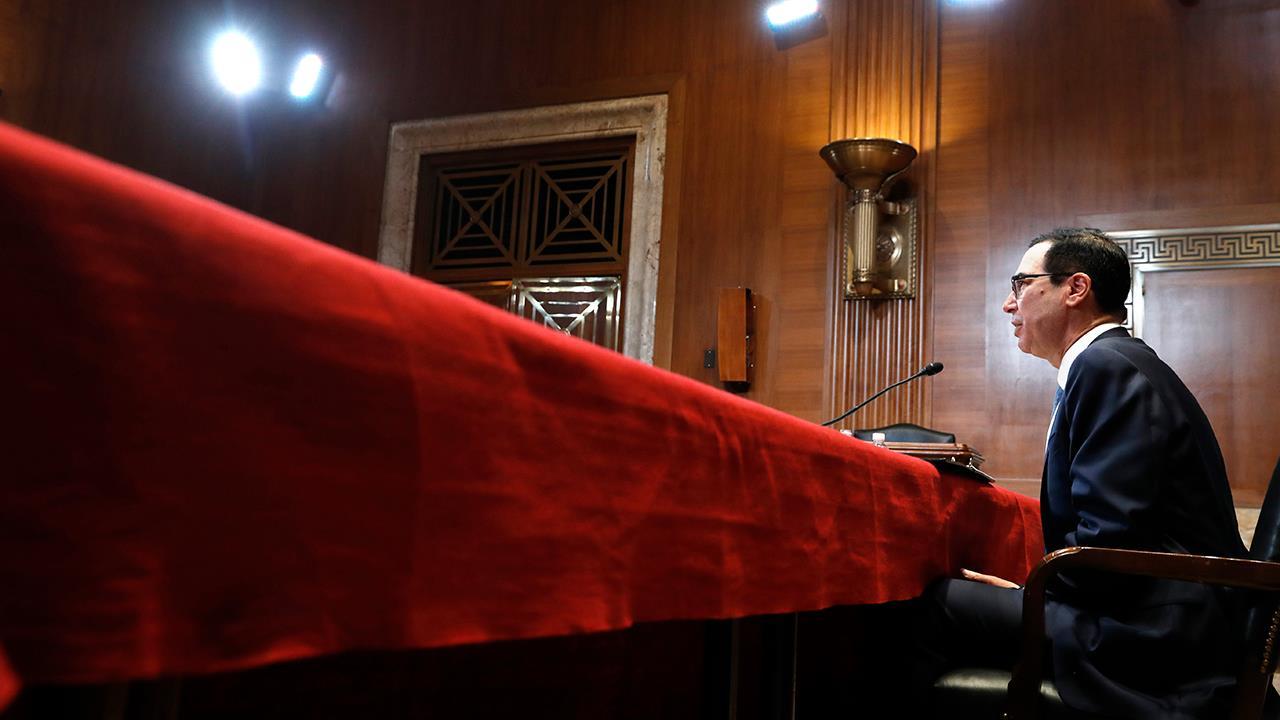Mnuchin says Congress, Trump making progress on debt ceiling limit deal
Treasury Secretary Mnuchin warns Pelosi debt ceiling could be hit by September
Treasury Secretary Steven Mnuchin is in talks to raise the debt ceiling of $22 trillion. National Taxpayers Union senior fellow Mattie Duppler with reaction.
Treasury Secretary Steven Mnuchin said the White House and bipartisan congressional leaders are continuing negotiations to raise the debt ceiling before the August recess – and that he’s confident the U.S. government is not at risk of defaulting on its debt.
"I don’t think the markets should be concerned," Mnuchin said during a CNBC interview. "I think that everyone is in agreement that we won’t do anything that puts the U.S. government at risk in terms of our issue of defaulting. I think that nobody wants a shutdown in any scenario."
In the "most conservative" scenario, Mnuchin said it’s possible the federal government has an issue at the beginning of September. He previously warned House Speaker Nancy Pelosi that the government could run out of cash by early September if Congress didn’t raise the debt ceiling ahead of its August recess.
"That’s why I’ve encouraged them to raise the debt ceiling before they leave," he said.
Mnuchin said he’s been having daily meetings with Pelosi and that the House, Senate and Trump administration reached an agreement on "top line" spending numbers over a one- and two-year period. Now, they’re discussing offsets and certain structural issues, he said.
"We've agreed, as a part of that deal, there would be a long-term two-year debt ceiling increase, so I think all of our first choice is to try to reach an overall agreement," he said. "And we are working hard to do that. But if for whatever reason we don't get there in time, I am encouraging a debt ceiling increase."
CLICK HERE TO GET THE FOX BUSINESS APP
The debt ceiling -- which is currently set at $20.46 trillion -- is the legal limit on the total amount of debt that the federal government can accrue; according to the Committee for a Responsible Federal Budget, it applies to both the $16.2 trillion held by the public, and the $5.9 trillion owed by the government.
If Congress is unable to increase the debt limit, the U.S. Treasury would enter uncharted territory, incapable of paying bills -- including payments to Social Security beneficiaries, government employees or service members -- since it would have no cash on hand.





















